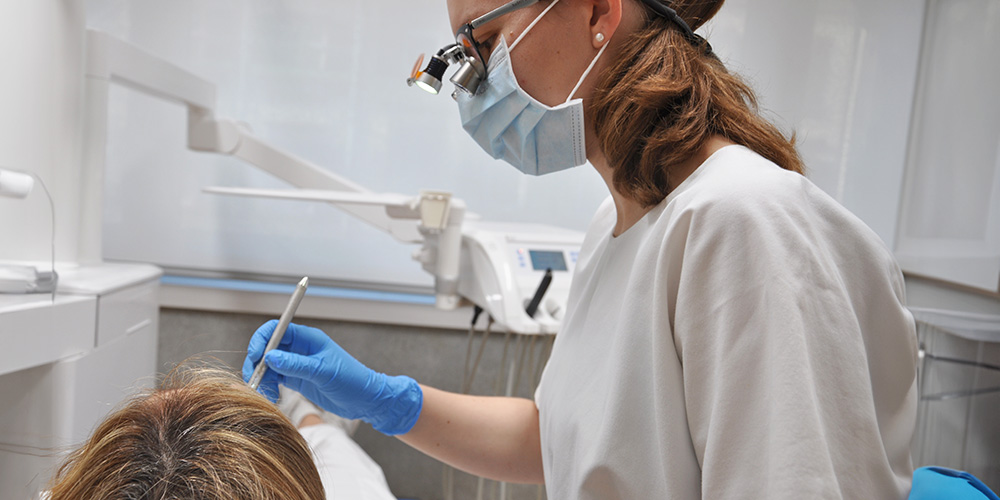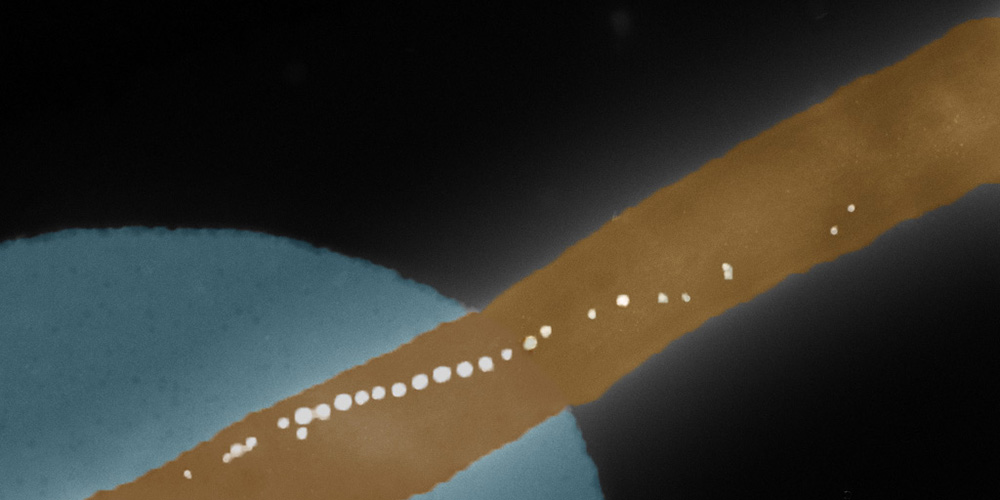Ever more children in the Basel region are cavity-free
Basel-Landschaft schoolchildren say “ah”: every year, the school dental service teaches proper dental hygiene and offers free examinations. A long-term study has now shown the effects these preventative measures have had on dental health and which children continue to be at risk.
09 October 2023 | Helena Zumsteg
The first cavity-prevention programs in Switzerland go back to the 1960s. According to a new long-term study, these efforts have proven effective: over half of children in the canton of Basel-Landschaft are now cavity-free.
Since 1992, researchers at the University of Basel and the University Center for Dental Medicine Basel (UZB) have regularly examined a representative number of schoolchildren in Basel-Landschaft for cavities and evaluated a sample of around 1,400 children.
The share of 15-year-olds without cavities increased from 29% to 69% from 1992 to 2021, with a similar improvement among 12-year-olds from 44% to 73% over the same period. The most recent numbers for 7-year-olds show 58% without cavities. This also means, however, that every third seven-year-old is still affected by cavities.
Despite the successes in prevention, the number of teeth with untreated cavities has remained constant. The study showed that children with a migration background, a low level of education, and younger children were the risk groups with the highest incidence of cavities.
The study, led by Professor Michael M. Bornstein and Dr. Eva M. Kulik, appears in the International Journal of Paediatric Dentistry.
Highly relevant for prevention
Co-study leader Dr. Eva Kulik explains the continuing high number of untreated cavities by noting that the prevention efforts are not yet effective enough and the topic of dental health is still given too little significance in daily life.
“Baby teeth should also be treated, as they have an important role as placeholders in the mouth,” Kulik notes. Cavities in baby teeth can also sometimes lead to lasting damage in permanent teeth.
Need for differentiated strategies
Care geared toward individual families could prove more effective for prevention, according to Kulik: “Families whose first-born child already shows evidence of cavities could be addressed and supported in a targeted way.”
Original publication
Andreina Grieshaber, Tuomas Waltimo, Asin Ahmad Haschemi, Michael Marc Bornstein & Eva Maria Kulik
Dental caries and associated factors in 7-, 12-, and 15-year-old schoolchildren in the canton of Basel-Landschaft, Switzerland: Changes in caries experience from 1992 to 2021
International Journal of Paediatric Dentistry (2023), doi: 10.1111/ipd.13122


